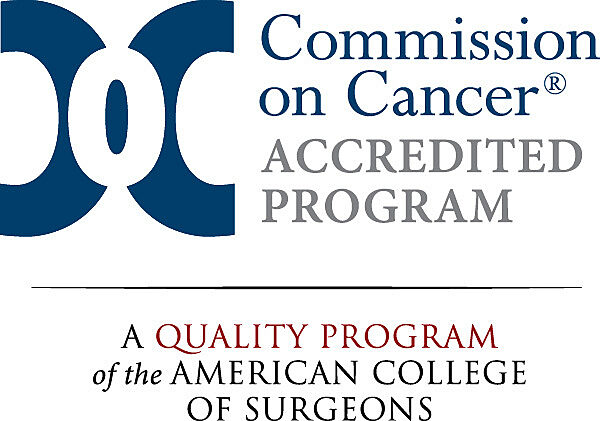UF Health Cancer Network earns national accreditation for quality care

The UF Health Cancer Network, comprising UF Health and the UF Health Cancer Center at Orlando Health, has received a three-year accreditation with commendation by the Commission on Cancer, a quality program of the American College of Surgeons.
The UF Health Cancer Network is one of seven facilities in the state of Florida to have achieved accreditation in the Integrated Network Cancer Program category from the Commission on Cancer, or CoC, which is bestowed on cancer programs that meet or exceed the organization’s 34 quality care standards. These standards are evaluated every three years through a survey process and accredited facilities must maintain levels of excellence in the delivery of comprehensive patient-centered care.
“The American College of Surgeons’ Commission on Cancer is recognized around the world as signifying excellence in scientifically based, patient-centered care,” said C. Parker Gibbs Jr., M.D., associate director of medical affairs for the UF Health Cancer Center and chief medical officer of UF Health Shands. “That UF Health was accredited for a full three-year term with special commendation speaks highly to the outstanding cancer care we provide to our patients and their families. This doesn’t happen without the dedication and hard work on a daily basis of the hundreds of faculty and staff at UF Health devoted to improving the lives of our cancer patients.”
While this is UF Health and the UF Health Cancer Center at Orlando Health’s first accreditation in the CoC’s Integrated Network Cancer Program category, both organizations have maintained accreditation as separate organizations under the Academic Comprehensive Cancer Program category for many years, according to Marcia Hodge, director of registry operations for the UF Health joint oncology program. For example, UF Health Shands Hospital, formerly Shands HealthCare, initially received accreditation in 1965.
This recent accreditation is even more difficult to achieve and requires UF Health locations in Gainesville and Orlando to collaborate in setting goals, standardizing policies and procedures and completing quality improvement projects — among other things — said Hodge.
“It’s a huge accomplishment to seek and achieve accreditation as an Integrated Network Cancer Program, and one that is only possible through the work of many individuals at both facilities,” she said.
The UF Health Cancer Network has also achieved the three-year accreditation with commendation, which is only awarded to facilities that exceed standard requirements at the time of the survey. The areas that received commendation are clinical research accrual, oncology nursing care, rapid quality reporting system participation, and data submission and accuracy.
Commission on Cancer standards require that accredited facilities take a multidisciplinary approach to treating cancer as a complex group of diseases that requires consultation among surgeons, medical and radiation oncologists, diagnostic radiologists, pathologists and other cancer specialists — resulting in improved patient care. Patients who receive care at a CoC facility also have access to information on clinical trials and new treatments, genetic counseling and patient-centered services, including psychosocial support, a patient navigation process and a survivorship care plan that documents the care each patient receives and seeks to improve cancer survivors’ quality of life, according to the American College of Surgeons website.
Like all CoC-accredited facilities, the UF Health Cancer Network maintains a cancer registry and contributes data to the National Cancer Database, a joint program of the CoC and the American Cancer Society. This nationwide oncology outcomes database is the largest clinical disease registry in the world and is a resource for exploring trends in cancer care. CoC-accredited cancer centers, in turn, have access to information derived from this type of data analysis, which is used to create national, regional and state benchmark reports. These reports help CoC facilities with their quality improvement efforts.
“This accreditation reaffirms our commitment to quality patient care,” said Christiana Shaw, M.D., the cancer liaison physician for the UF Health Cancer Network and associate professor of general surgery in the UF College of Medicine. “Patients who come to UF Health know they are receiving the best possible care, and they have opportunities to receive cutting-edge treatment.”
UF Health and Orlando Health launched a joint oncology program in 2014, which has resulted in one of the state’s largest, most comprehensive cancer programs, staffed by some of the nation’s top oncology experts. As partners, these facilities boast 11 multidisciplinary programs offering state-of-the-art treatment programs that include minimally invasive surgery, robotic surgery, radiotherapy, chemotherapy, plastic and reconstructive surgery and proton beam therapy, as well as access to new treatments through clinical trials. The UF Health Cancer Network serves nearly 10,000 new cancer patients annually.
About the author
